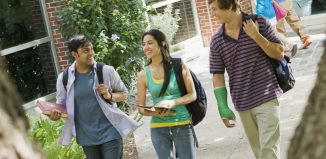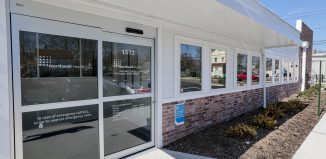The Ted Talk I wasn’t asked to give…part one
By Bruce Stasiuk
Ahem.
The subject of this talk is American education; or, as I sometimes call it … artificial intelligence. Full disclosure: I admit that I don’t know much about what goes on in high school, having spent only four distracted years at that level. This presentation refers to the foundational years — the K-6 building blocks where I invested six seasons as a parochial student.
After completing the requirements at Adelphi Suffolk University, I was invited to teach a few graduate courses there. Afterwards, I spent 34 enjoyable, yet disorganized seasons as a classroom teacher, then eight more years instructing a course called Thinking Inside the Box for K-12 teachers, which gave me the opportunity to examine the species up close and personal. That comes to about 50 years in fuzzy numbers. But, who’s counting on me?
You’re urged to disagree with anything expressed here, because I make mistakes regularly, myself being a product of the American industrial-education complex. Let’s start with the premise that all knowledge is worthwhile and desirable. There is no benefit to not knowing something. Ignorance is not blissful. However, all knowledge is not of equal value. The ability to read about the inventor of the cotton gin is of more value than knowing and memorizing his name. Likewise, although there would be some usefulness in recalling every number in the Manhattan phone book, and the cognitive exercise would be an accomplishment, it would mostly be a huge waste of “edu-minutes.” Knowing how to alphabetically look up a phone number is a more valuable and transferable skill. At least until it’s made obsolete in our advancing digital world. So, can we agree that some knowledge is of lower value, some is of higher value, and some is rapidly approaching an expiring shelf life?
Since schools operate by the clock and calendar, there is a finite amount of class time for learning. There is so much to learn, but students can’t learn it all. So, choices must be made. Schools need to adopt a regular policy of knowledge triage. There’s got to be jetsam and flotsam in order to make room for the important cargo. But even if schools agreed to do it, would they flotsam the right jetsam?
Ask your local administrator what’s the last thing added to the curriculum. Then ask, what was removed to make room for it. If there’s no answer, it means the program was diluted (unless the school day or year was expanded — not a chance) or in a misguided way, the usual ballast of art and music were reduced. Like the roach motel, once something enters the schoolhouse door, it can almost never leave. Schools change very little. If you were in the fifth grade 25 years ago and you visited a class today, it would look very familiar. Computers and tablets are used like electric paper, but the substance is the same. Oh, the blackboards are now smarter … but are the kids? Old wine in new bottles.
Remember, the learning clock is ticking. Time is passing. As a child, I had a fantasy of every person, at birth, receiving a huge hourglass. Except it wasn’t designed to measure an hour. It was constructed as a lifetime-glass. The top bulb contained all the sand representing one’s life according to actuarial tables. It was inverted at birth and the sand started trickling through the narrow stem passageway. One could see the top bulb dripping sand into the bottom bulb. Even at night, opening one eye, one could visualize their lifetime with the lower heap growing while the upper kept draining smaller. I wondered if a life would be led differently with such a visual aid.
Schools have to think that way. They must sort out, rummage through, and evaluate all available knowledge and select those age-appropriate things that will help develop students into educated people with transferable skills and functional wisdom. Ideally, layer upon layer will build up until enough practical knowledge and related talents enable graduates to negotiate life in a fluid and uncertain world — a very moveable feast. A friend recently told me the experience of his dental school orientation at the University of Maryland. The dean advised the new students that 50% of what they’d learn would no longer be true by the time they graduated. Furthermore, he advised, they won’t know which 50% it was.
So what did we learn in school? Reading. Of course reading. And math. Although I never did divide 4/7 by 3/9 ever again, I remember some lessons quite well. Pilgrims wore funny hats and buckled shoes. We drew pictures of them. They were brought home and taped to refrigerators — or iceboxes —remember, this was the South Bronx in the ‘50s. “Mary’s violet eyes … ” helped us learn what was, at the time, the order of the planets. But of what practical value is there in knowing that Jupiter is nearer to the earth than Saturn? So little time … so much knowledge.
Bruce Stasiuk of Setauket continued to teach after retirement. He currently offers workshops to seniors (citizens, that is) as an instructor in the Osher Lifelong Learning Institute, housed on the campus of Stony Brook University.
Look for part 2 in next week’s edition.







